Feminismos internacionalistas
In recent years, feminist movements have become a strong and diverse transnational force that is challenging right-wing populism as well as authoritarian neoliberalism. They are coordinating the international feminist strikes on March 8 and generating other, ongoing spaces for dialogue and exchange across national borders.
This doesn’t mean making abstractions or generalizations from local differences. On the contrary, it seeks to paint a more complete picture of the interlocking systems of oppression, on which the global capitalist market is based, and to find common ground between struggles. In this way, feminist movements simultaneously act both locally and transnationally, deconstructing traditional ideas of what internationalism should look like, enacting a new form of internationalism based on creating everyday connections between situated struggles.
We accompany the construction of those transnational feminist networks that have a left, intersectional, antipatriarchal, anticapitalist and socio-ecological perspective, which are strongly rooted in the Global South. That accompaniment also includes the promotion of platforms for dialogue with more traditional actors and institutions, as well as strengthening and expanding the networks and coordination between movements, in order to build radical democratic systems that put our collective well-being at the center.
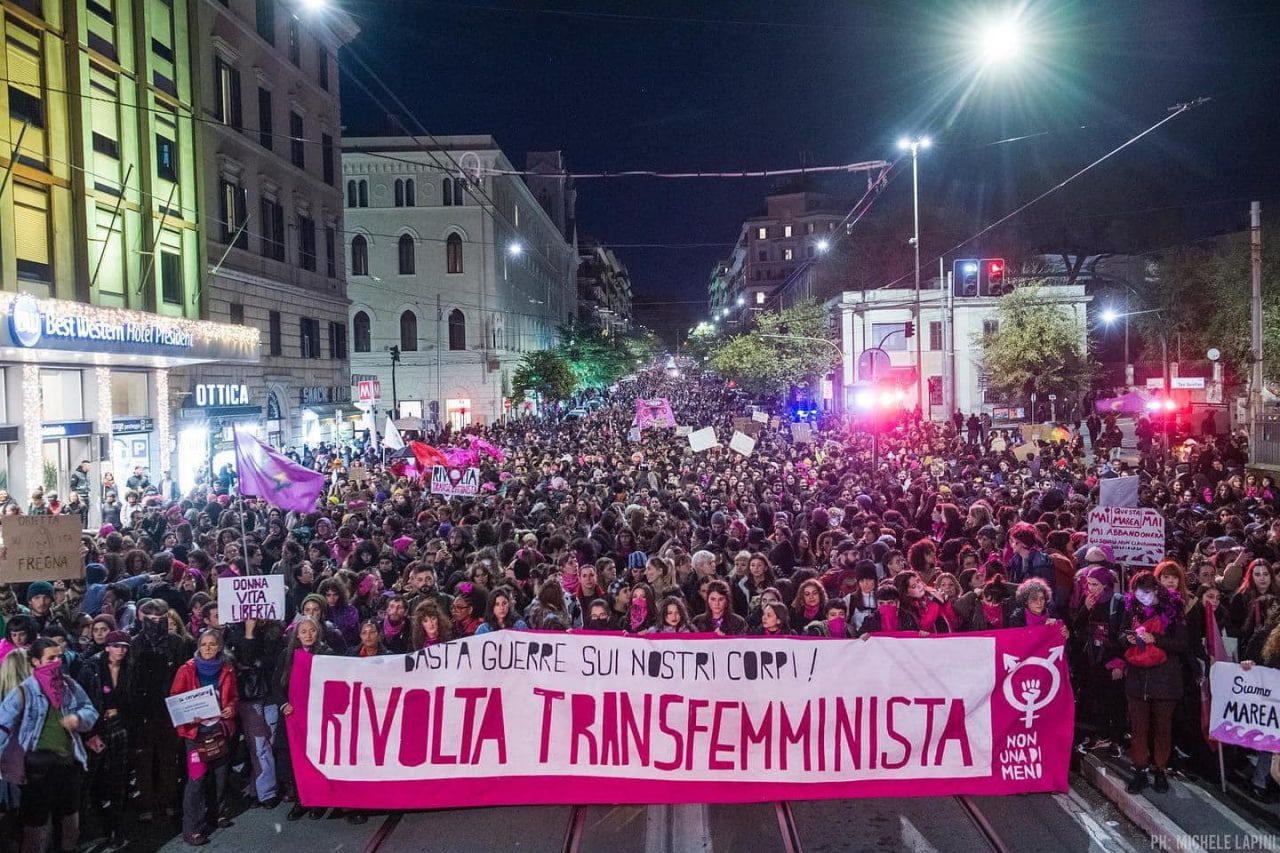
6 years after the 1° Feminist Strike. Difficulties, continuances and challenges for the fight
Difficulties, continuances and challenges for the fight
At Fundación Rosa Luxemburgo, we think that several years after the first strike it is interesting to ponder the continuity of internationalist bonds, historical lessons learned and current challenges.
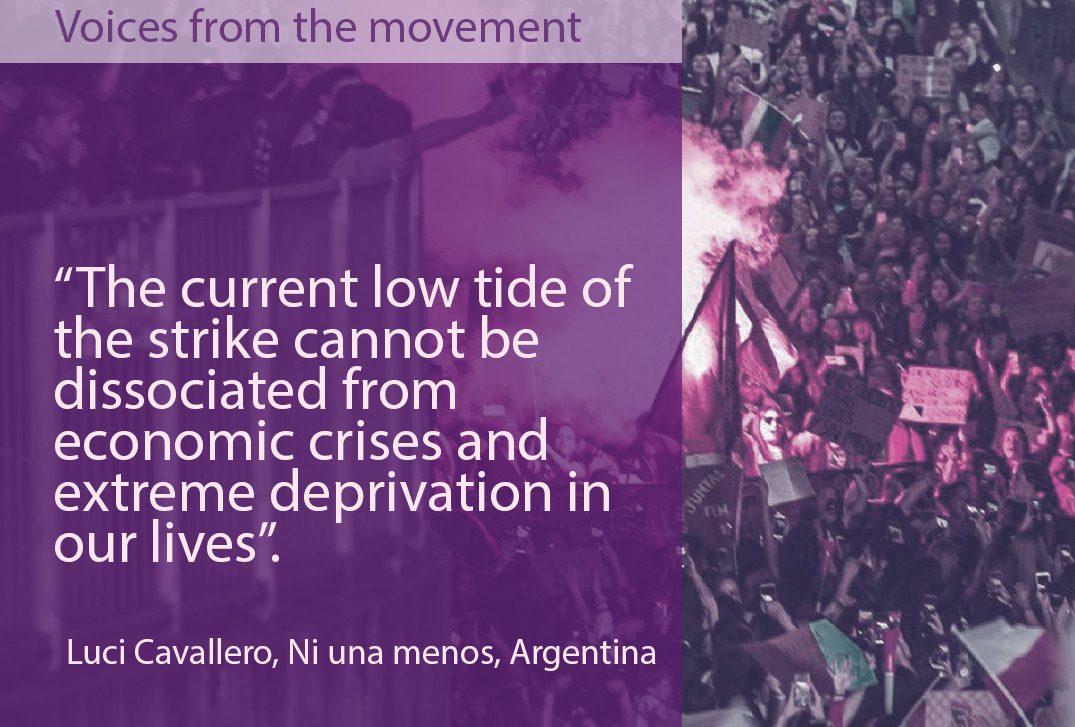
8M: Voices from the movement
These statements come from a virtual transnational debate on the feminist strike organized on February 8, 2023 by the Rosa Luxemburg Stiftung. This meeting was attended by over 60 activists of feminist organizations from various countries.
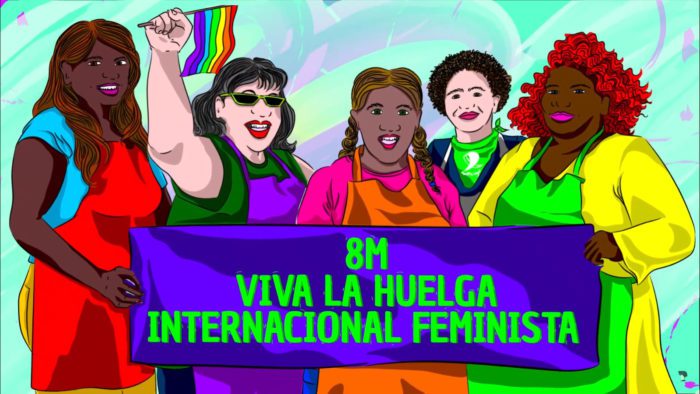
8M: Domestic workers as protagonists of care and struggle
This material was produced in workshops among domestic workers and feminists from Argentina, Chile, Paraguay, Honduras, Mexico, Spain and Germany to raise their demands for March 8. Domestic workers, who are protagonists of care every day, will also be protagonists of the struggles on 8M.

Beyond Private Power of Employers and Precarity: Towards Municipalization of Paid Domestic Work
The precarious personalized paid domestic work relation can be transformed through municipalization. Going beyond the current legal framework, formalization of domestic work is only possible if the state authority situates itself as the principal employer. Municipalization of domestic work will make it a public good and constitute domestic workers as

What does November 25 mean for household employees?
This November 25, household employees from different countries bring together their demands in this document as part of the women’s and feminist movement for a life free of sexist violence.

The Pride of Existing and Resisting
What are the points of contact between totalitarianisms and right-wing shift in societies marked by hatred towards gays, lesbians, and trans people. The violent defense of the privileges of powerful heterosexual white men seems to lie behind both processes. Thus, it is no easy fight.

A feminism to deactivate the backlash
Fighting the extreme right today, as well as the precarity and fears that fuel it, requires decidedly committing to a feminism for everyone.

A Socialist Handbook for Intra-Party Feminism
This is about nothing less than the question of how political organizations can create structures and a culture that enable women and other disadvantaged groups to participate equally, free of discrimination, and in this way become more democratic.
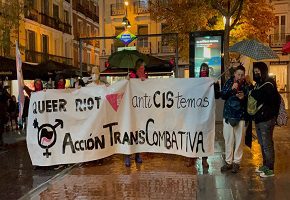
Being Trans in Spain
The Acción Trans Combativa collective in Madrid is a strong force within the fight against fascism and conservatism, as well as within the feminist movement. Interview with Kiar Ciotoli.

Dissident Memories in Argentina
Is it possible to construct an LGBTQI+ memory of state terrorism in Argentina? We interviewed Cristian Prieto, a journalist, activist, and researcher about LGBTQI+ disappeared during the last military dictatorship.

Los innombrables
Los Innombrables is an audiovisual series in Spanish about conservative perspectives that have spread in Latin America in recent years that oppose the expansion of rights for women and diverse sexualities. It was produced by the RLS Ecuador office.
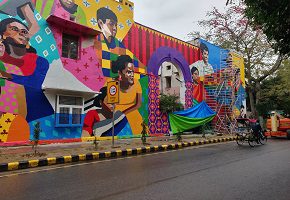
Wall art against gender discrimination in India
Aravani Art Project is an art collective led by trans and cis women in India that aims to strengthen the visibility of the LGBTQIA+ community. Its promoters explain what the project is about, which uses street art to denounce gender-based violence and postulate the struggle for the dignified lives of
